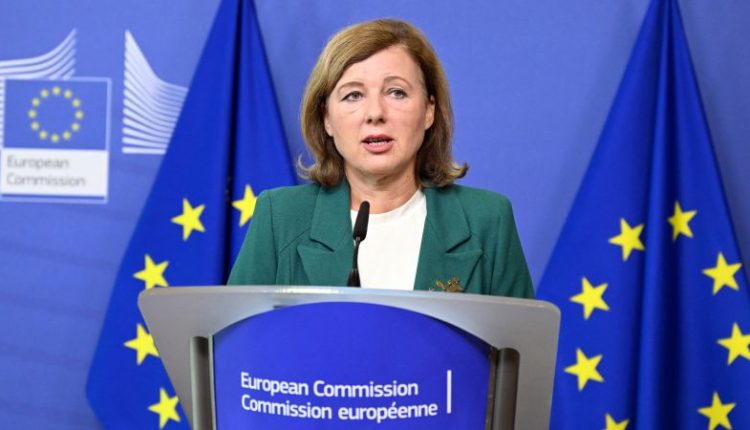European Union officials on Tuesday called on large social media platforms to step up their enforcement against online mis- and disinformation, particularly about the war in Ukraine.
In prepared remarks Tuesday, European Commission Vice President Vera Jourova particularly criticized X, the platform formerly known as Twitter, as having the “largest ratio of mis/disinformation posts” among platforms that submitted reports to the EU.
“Disinformation actors were found to have significantly more followers … and tend to have joined the platform more recently than non-disinformation users,” Jourova added.
X’s report follows a decision this spring to withdraw from commitments to abide by a voluntary code of conduct around disinformation, a move that raised eyebrows among watchdog groups and regulators. X didn’t immediately respond to a request for comment.
The reports unveiled this week by the EU reflect transparency filings attesting to the companies’ efforts to live up to the code. In the EU, adhering to the voluntary code is a factor in determining a platform’s overall compliance with the Digital Services Act, a tough set of binding regulations for online platforms that took effect this summer. For large social media platforms, violations of the DSA can mean billions in fines.
The reports from companies, including Google, Meta, Microsoft and TikTok, cover a wide range of content types and enforcement actions by the platforms. The largest platforms have committed to issuing reports every six months, and this week’s release reflects the first set to cover a full six-month period, the European Commission said.
Google’s report showed that in the first half of the year, it blocked more than 31 million euros in advertising revenue to EU-based accounts spreading disinformation, while TikTok said it removed more than 140,000 videos with over one billion views that had run afoul of the company’s misinformation policies, according to the European Commission.
Meanwhile, Microsoft reported that it blocked more than 6.7 million fake accounts from being created on LinkedIn, and Google said that in the first quarter of the year, its subsidiary YouTube removed hundreds of channels linked to the Russia-backed disinformation group known as the Internet Research Agency.
But Jourova said the companies cannot rest.
“I expect the platforms to do more efforts with better results,” she said in her prepared remarks. “Russian propaganda and disinformation is still very present on online platforms. This is not business as usual; the Kremlin fights with bombs in Ukraine, but with words everywhere else, including in the EU.”
Read the full article here

